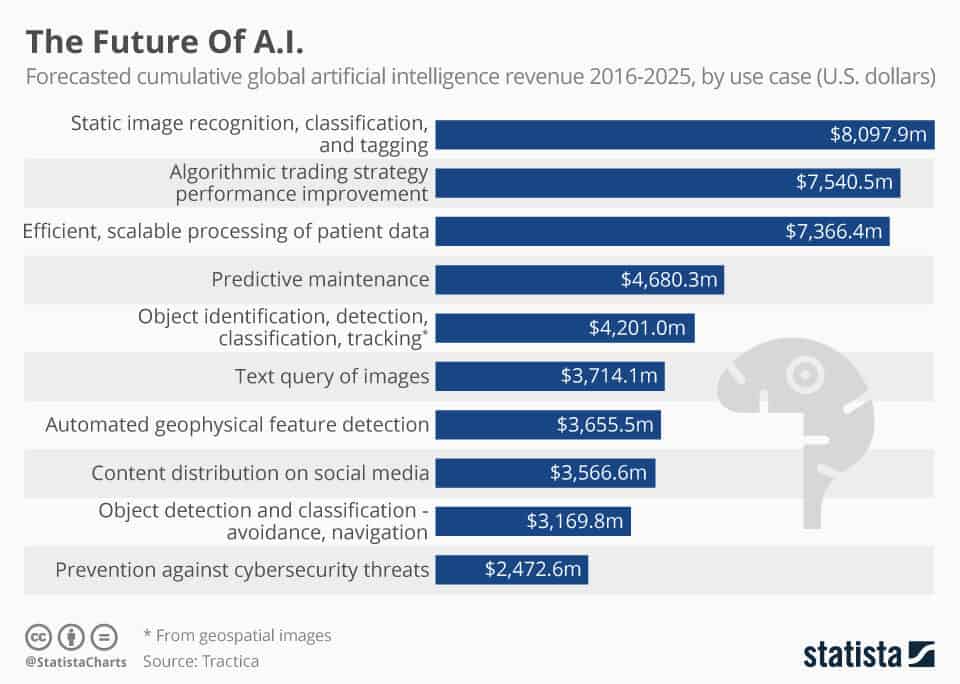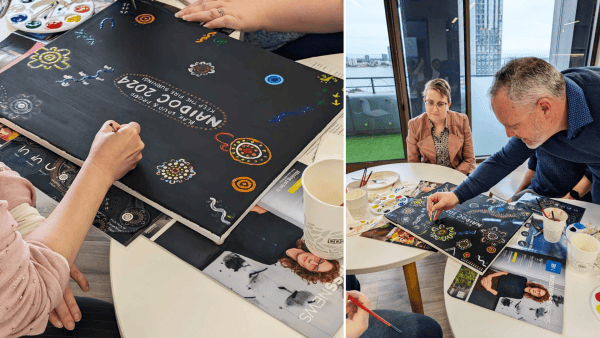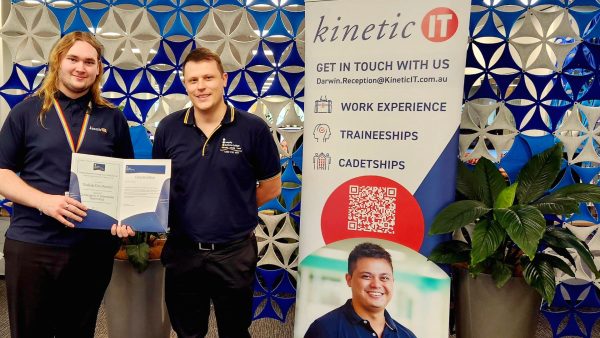The golden age of AI is here. On 30 November 2022, the start-up OpenAI released its artificially intelligent chatbot ChatGPT. In just five days, it already had one million users and two months later, a whopping 100 million users. It was one of the fastest product adoptions in history – and more companies want a piece of it.
The rise of AI
Following the frenzied talk that ChatGPT was going to replace search engine giant Google, the company released Bard – their answer to AI chat services – on February 6, 2023. That same month, after investing $10 billion into OpenAI, Microsoft responded by unveiling a Bing chatbot, with users reporting strange, unsettling and even aggressive experiences with the chatbot. Whether you’ve found AI chatbots to be helpful, bizarre or endearing, there’s no denying that AI has captured the world’s attention, and the race is on to develop AI technology.
All this has already had a huge impact on business, from employees utilising AI tools like ChatGPT to organisations implementing AI integration strategies. With AI technologies offering everything from enhanced productivity to reduced costs, the AI market is set to skyrocket to $500 billion in value by 2024. And it’s not just for large corporations or tech businesses – AI is transforming business at every level and may soon become essential to remain competitive.

What is artificial intelligence?
The definition of artificial intelligence (AI) has been debated over the years, so who better to provide a definition than an AI system itself?
“Artificial intelligence (AI) is a field of computer science that focuses on creating intelligent machines that can perform tasks that typically require human intelligence, such as recognizing speech, making decisions, predictions, and recommendations, and learning from experience. AI systems use advanced algorithms and techniques such as machine learning, neural networks, and natural language processing to analyse and process large amounts of data, allowing them to perform complex tasks with speed and accuracy.”
That’s how ChatGPT defines AI – and of course, it’s spot on. In short, AI uses intelligent computers and machines that are programmed to replicate human actions and capabilities such as decision-making and problem-solving. AI has the potential to completely transform the entire world, but it’s already making waves in business.
We look at the top six ways AI is transforming business and talked to Kinetic IT developers Domenic Horner and Daryl Crosbie about how your organisation can leverage AI technology now.
RELATED CONTENT: Task automation: 9 steps to mitigate the security risks
1. Increasing automation
Automation is one of the biggest ways AI is transforming business. Every business has hundreds of routine tasks to complete daily, however, AI tools can take care of these tasks and free up the human workforce for more important jobs. Whether it’s using AI-powered chatbots to answer customer queries or AI-powered platforms to manage calendars, AI promises to handle the mundane business tasks across all areas from IT to marketing. Even better, since AI uses algorithms to learn from its mistakes, AI automation processes will only continue to improve over time.
Senior Application Developer Domenic Horner says “The technology in AI and machine learning is advancing at a very rapid pace and there’s more and more use-cases being developed and proven with each advancement. A main benefit of AI is timesaving; making the hard jobs easier, or assisting humans with tasks like writing articles, answering technical questions, or generating text.”
With automated workflows and optimised processes, AI is transforming business by removing the need for thousands of hours of manual legwork. And it does it all while boosting business productivity, reducing human error, and lowering costs.
Solutions Developer Daryl Crosbie says “Businesses stand to gain a lot from the integration of AI into everyday activities. Almost all routine operations could be automated, freeing up staff for more critical roles. Kinetic IT’s AVA application, for example, has alleviated Service Desk call volumes by automating common and frequent account issues like unlocks and password resets. This gives the human agents more time to focus on complex support cases and enhances the user experience as they don’t have to wait to speak to an agent.”
“We should certainly embrace AI tools like ChatGPT as they can help automate tasks and make them more efficient and effective,” says Daryl. “People have been using search engines in the workplace since the early 90s to assist with finding information, making their jobs more efficient and effective. ChatGPT can be seen as the future of search engines that can provide instant answers and allow for additional questions to continue a running dialogue. The overall user experience should become much more satisfying.”
RELATED CONTENT: Case study: Qantas welcomes aboard AVA
AI innovation with AVA
Kinetic IT released its first AI innovation in 2020 with the launch of AVA at Qantas. AVA is a serverless, conversational AI solution developed using the AWS cloud platform. As an Automated Virtual Agent, AVA is a 24/7, personalised service that converses with people using voice or text via telephone. AVA can also perform a range of simple requests such as password resets, unlocking accounts, providing status updates, triaging incoming calls, transcribing voice recordings, and verifying the identity of a caller.
After its release at Qantas, AVA achieved a remarkable 99.99% resolution rate via chat and saved Qantas staff an average of 200 hours a month in waiting times. This allowed Kinetic IT’s human Service Centre agents more time to perform more high-value services and activities. On the back of its initial success, AVA went on to win a coveted innovation award at the 2022 itSMF Australia Service Industry Awards.
RELATED CONTENT: Kinetic IT wins gold with AVA at itSMF Australia Service Awards 2022

2. Changing the workforce
With AI holding the key to automation and increasing productivity, the future of AI in business seems rosy – but also rocky. There has been significant concern around the rise of AI technology and the way AI is transforming the workforce. While AI has the potential to increase business growth in almost every sector, it also has the power to unleash relatively unknown and possibly devastating consequences, such as the shrinking of the human workforce. As AI becomes an integrated part of the workforce and begins to perform tasks at a level that humans simply cannot, the reality is some jobs will become obsolete.
“AI has already started to disrupt existing IT roles,” says Domenic. “AI tools are automating certain jobs, such as automatic text extraction, identifying trends in data, and performing speech-to-text analysis.”
The World Economic Forum Future of Jobs Report 2020 states that 85 million jobs will be replaced by machines with AI by the year 2025. But they won’t all just disappear. Some jobs will change and grow, and more optimistically, the same report says that 97 million new jobs will be created by 2025 thanks to AI, such as AI engineers, machine learning engineers, AI trainers, and data scientists. A Narrative Science survey found that 80% of tech leaders say AI increases productivity and creates new jobs.
The workforce will always need people, but roles and skillsets will become more specialised as AI becomes more advanced. There are also specific human abilities and skills that are difficult to replicate with AI, such as creativity, adaptability, and understanding social dynamics. Rather than replacing humans, AI is more likely to become a tool that humans can use to augment their own abilities and unlock new levels of innovation.
“AI will continue to integrate into businesses going forward, which will likely reduce the workforce numbers in some businesses,” says Daryl. “But I don’t think it will take away jobs completely; not overnight anyway. If a business can experiment with AI in different areas of the workplace, they absolutely should do so.”
AI use case: Software developers
AI tools have the potential to be embedded in all work processes of the future, and software development is one of the key areas already reaping great benefits from AI technology. AI systems are set to produce and fix code at lightning speeds, with minimal human intervention. They can also help software engineers with quality assurance, by identifying the right tools to fix bugs and issues in code and applications. As machines grow in capabilities, they will eventually run and manage whole computer systems and company networks.
Domenic says he’s already used AI tools. “In my role as a Software Developer, I’ve used AI tools like GitHub CoPilot to aid in generating or auto-completing code. I can give CoPilot a few keywords on what my function should do and then it completes the function for me, often not needing very many changes.”
Daryl agrees. “As a developer, AI tools like ChatGPT can and have been very useful for providing programming concepts. Working with new technologies can sometimes be a little tedious, but with ChatGPT, the tools answer questions instantly, provide links to more information, and provide code examples to get you started. It can significantly enhance my productivity, as opposed to searching the internet by normal means, like Google.”
RELATED CONTENT: Want a career in cyber security? Experts share 7 useful tips
3. Informing decision making
AI is transforming business at the very top. Most organisations rely on analysing big data to develop business strategies, identify target markets, promote products, and manage workflows. It can take humans months to sift through large amounts of data and use it to make informed business decisions. For AI, that’s a casual day at work.
Not only can AI and machine-learning algorithms analyse big data to quickly draw patterns, identify trends, and predict outcomes, but they can also suggest the right actions. The human decision-makers of a business can use this information to take actions in alignment with company goals and vision. Since AI is proven to be faster and more accurate than humans, AI technology can save businesses money, time and resources.
“All businesses accumulate data over time which can be used to evaluate certain aspects of the business, however, this data can be massive making it difficult to analyse and evaluate,” says Daryl. “With AI, such a task can be easily executed and provide information on trends and even predict future results, which could be useful for developing new business strategies.”

4. Improving cyber security
One of the most useful ways AI is transforming business lies in cyber security strategies. Cyber crime is one of the biggest threats to all organisations, from small businesses to multinational corporations. Cyber attacks are becoming increasingly complex and frequent, with a cyber crime reported every seven minutes in the 2021-2022 financial year.
In 2022, around 66% of businesses had experienced a cyber attack in the past 12 months, while Accenture’s Cost of Cybercrime Study found that 43% of cyber attacks are aimed at small businesses, but only 14% are prepared to defend themselves. Even more alarming, IBM’s 2020 Data security report found that it took businesses an average of 280 days to detect and contain a breach.
This is where AI can help. AI systems can improve a company’s security posture and reduce the risk of breaches by filtering out malicious links or phishing emails before employees get to them. It can also recognise cyber threats and cyber attacks by monitoring data input. Once it detects a threat, it can identify the source. As AI and machine learning algorithms are always learning from past data, it also means AI can learn to identify new types of cyber attacks. All this gives human cyber security teams an extra powerful set of eyes to monitor cyber security systems around the clock.
It may seem counter-intuitive to trust a machine to protect itself, however, Daryl says: “For now, there shouldn’t be much concern, provided these tools are used in a responsible and ethical manner. AI tools shouldn’t be given access and control over sensitive information as these tools could be hacked leading to security breaches.” As cyber attacks continue to increase in scale and complexity, having AI as your ally in protecting your organisation will be crucial.
RELATED CONTENT: 8 cloud security tips to keep your data safe in the cloud
5. Personalising customer experience
A Qualtrics XM Institute 2021 study found that more than 60% of consumers want businesses to care about them and prefer to buy from brands that do. Meanwhile, Accenture reported that 91% of surveyed customers prefer to shop with brands that recognise, remember and provide them with personalised offers and recommendations. Personalisation is the future of great customer experience, but how can AI help with that? It’s all in the data.
AI algorithms can analyse data to understand individual customer preferences and behaviours. Businesses can use that information to create personalised experiences for their customers. They can target more specific audiences, improve customer experiences, and deliver the right information to the right person at the right time. It’s clear AI is completely transforming business marketing strategies.
RELATED CONTENT: 4 tips for safe online shopping this holiday season
6. Sourcing talent
Every business relies on the right talent to get the job done. But it’s not an easy task. In the past, the recruitment process is often long and resource-intensive, requiring humans to craft and post job ads, review resumes, conduct interviews, and onboard talent. In the new era of AI-powered recruitment solutions, businesses can cut that process in half.
AI chatbots can write and post job ads, scan resumes, and help recruiters screen large pools of candidates by asking questions and collating responses. All of this means that businesses find the best talent faster and can also respond to candidates within days, instead of weeks.
The future of AI in business
AI may have only just hit the mainstream thanks to popular new tools like ChatGPT, but we’ve already seen the powerful ways AI is transforming business, from increasing productivity to improving cyber security.
The World Economic Forum says the “next phase for businesses is to build a multi-layered AI architecture that integrates industry knowledge with cutting-edge technologies such as NLP, robotic process automation (RPA), ML and advanced analytics” that will impact all business functions from operations to finance to sales and marketing. Beyond that, it’s predicted that AI will develop to understand human emotion by analysing the facial expressions, speech, and engagement levels of people, taking business to a new realm of intelligence.
The future of AI in business looks promising – yet precarious. As organisations begin to navigate issues of job displacement, user legalities, privacy, bias, accountability, and ethical considerations, it will become increasingly important for businesses to understand the potential consequences of using AI technology, while also reaping the impressive benefits of these tools. There’s little doubt that artificial intelligence has the potential to transform the economy and the world, but the full impact of this technology remains unknown.
We turned to AI itself to get a deeper insight into the future of AI and the ways AI is transforming business. The OpenAI language model ChatGPT says:
“As an AI language model, I can tell you that the future of artificial intelligence is both exciting and uncertain. AI has the potential to transform almost every aspect of human life, from healthcare and education to transportation and entertainment, making our lives easier, more efficient, and more personalised. However, it is important for humans to approach the use of AI with caution and careful consideration. This means investing in responsible AI development, ensuring that AI systems are designed with ethical considerations in mind, and addressing the potential social and economic impacts of AI.”
As humans, we couldn’t have said it better ourselves.













